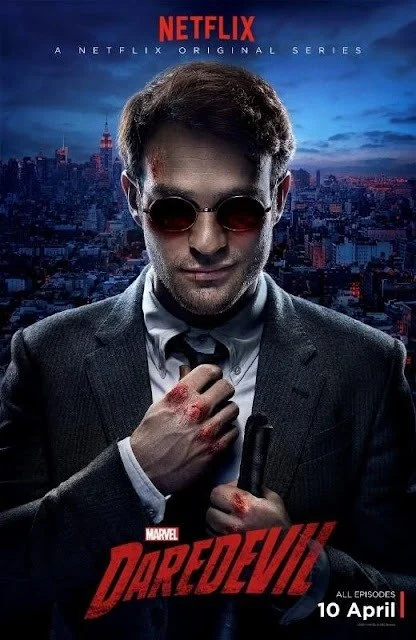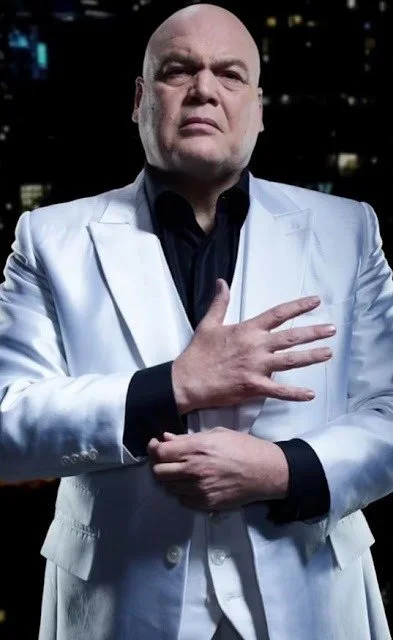The Reasons Why ‘Daredevil’ Deserves A Fourth Season
Daredevil released on Netflix in 2015, was acclaimed at the time by both critics and the public. It remains to this day as one of the best Marvel productions. And stands out among the Marvel Studio productions in terms of its adult tone and quality. However, since the birth of Disney+, the series was canceled after 3 seasons, along with Marvel’s deal with Netflix.
Now, in 2022, the flames of their continuity are rekindled. Both Charlie Cox’s Matt Murdock, aka Daredevil, and Vincent D’Onofrio’s Wilson Fisk, aka Kingpin, made their respective appearances in Spider-Man: Far From Home and Hawkeye. And there are rumors of a reboot. But would that be the right thing to do? Wouldn’t a continuation of the series in a fourth season be more plausible? Merging the raw and realistic Daredevil with the tone of most parts of the MCU would be a mistake.
RELATED:
Daredevil was created by Stan Lee and Bill Everett in 1964, with the collaboration of Jack Kirby. Unfortunately, it did not have the aesthetics or the current symbolism in its beginnings. When he fell into the hands of Frank Miller, he became the character we know today. He gave him not only depth, realism, and darkness previously absent but also placed as his main nemesis the criminal Wilson Fisk, aka Kingpin, and introduced several new elements to the universe: ninjas, the Caste, and key characters such as Elektra and Stick.
The series premiered on April 10, 2015, and was created by Drew Goddard, who began writing episodes of Buffy the Vampire Slayer, Lost and Angel and then jumped to writing Cloverfield and The Martian. His task was to make a series with an adult and dark tone, away from the more suitable atmosphere for all audiences of the MCU, and supervised by the renowned Jeph Loeb was in charge of transferring Daredevil to the screen.
Matt Murdock had an accident as a child that left him blind but with an extreme sharpening of his senses. He was the son of a boxer killed by the Mafia, and he gradually transformed into a demonic vigilante by night and a catholic lawyer by day. At the beginning of the series, his alter ego has no name and does not wear the iconic, sophisticated red suit but a black one made by himself in a rustic way. His motivation is simple: to cleanse Hell’s Kitchen of its corruption. And to achieve this, he must dismantle a fortified succession of shady layers along with fellow lawyer Foggy Nelson, his secretary Karen Page and journalist Ben Urich. As a result, the media give him the name The Devil of Hell’s Kitchen, which the character appropriates until he becomes Daredevil.
What is fascinating about this work is the three-dimensionality and the high degree of character development throughout its three seasons. The theme of morality and its limits run through the entire series and are not merely exposed issues; it is explored through the lens of its multiple characters, from Daredevil himself and his dilemma of killing or not killing to Karen Page and her decisions or the bloody sense of revenge of The Punisher. The relationships between the characters mutate. They are constantly damaged by the wall of corruption and power, but they always find a way to continue. There is inherent humanity in them that thrills.
The technical side is impressive; excellent cinematography, carefully staged action scenes, a great script, and a casting that couldn’t be any other. For example, Charlie Cox and Vincent D’Onofrio make the perfect hero/antagonist duo with performances that strike me as some of Marvel’s best.
Each season has a story arc. The first one is rounded and focuses mainly on Charlie Cox’s metamorphosis into Daredevil and his confrontation against Fisk, going in crescendo until an explosive ending. The second season doesn’t reach the heights of the first, having different themes that sometimes tangle with each other, but it’s still very good. And the third season excels at being a gem of television. But as said before, it was canceled at its prime moment.
Four years have passed since its cancellation in 2018. And now, in 2022, there is a whole new panorama for the series. It was removed from Netflix and integrated into the catalog of Disney+, giving it the previously absent “canon” label. So will it be a continuation in the same tone, story, and casting as the first three seasons? Or will it be “washed” by the ATP standard of almost the rest of the MCU? At the moment, we don’t know. But some aspects of the recent Moon Knight and Doctor Strange in the Multiverse of Madness give me some hope. The first one seems a bit isolated from the rest of the series, offering its own story and characters. And the second has its own Sam Raimi author’s mark and is the first work in the Marvel Cinematic Universe to be closer to the horror genre than the classic Marvel fantasy/action/sci-fi brand.
The MCU seems to be taking the first steps in a different kind of storytelling. Perhaps, and hopefully, this is the opportunity for Daredevil to continue down that path in an adult and realistic fourth season.
READ NEXT:




